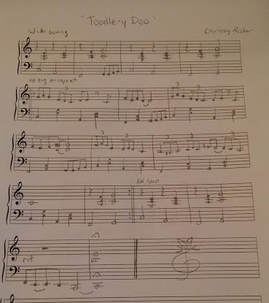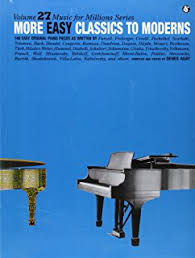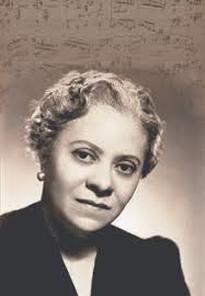
Week 4 of the professional development challenge is done, and my summer break is almost over as well. I feel like I am getting organized for the fall, though--how about you?
Here are my thoughts on how Week 4 of the challenge went:
Practice a piece from your library you have never played before.
- Done! I decided to go back to the Beethoven sonata I listened to in Week 2’s challenge, the Op. 90, and practice the first movement. Before I knew it, an hour had gone by. I am going to continue practicing this movement. It has just enough of a challenge (especially the left hand broken chords that make me wish I could reach a tenth!) to make me really need to slow down and practice, but not so much that I feel overwhelmed. I think one of the most important things I have learned from this entire professional development challenge is that I really need to spend more time practicing—not just preparing for performances, but practicing consistently to keep up my skills and to keep learning new repertoire.

Write 16 measures of last week’s improv on staff paper.
- Done! I call this little tune “Toodle-y Doo.” Just something silly and catchy.
I am especially proud of my treble clef cat at the bottom. :)
Do 15 minutes of gentle yoga or stretching exercises.
- Done! This challenge might not sound piano-related, but I have learned that for me, doing Pilates on a regular basis has helped me to become more aware of my posture, breathing, and any tension I might be having when I practice piano. I need to get back into the habit of doing this daily!

Sight-read a teaching piece from each style period.
- Done! For this challenge, I pulled out my trusty “Classics to Moderns” books and selected a few pieces by composers that I don’t teach as often as I should.
- I think I found a few good alternatives to some of the pieces I find myself teaching over and over. The pieces from this collection I especially enjoyed were:
- “Rigaudon” by Handel: a fun piece with an active left hand—would be a good choice for a student that needs something a bit more challenging than the A.M. Bach notebook pieces.
- “Allemande in G” by Carl Maria von Weber: I really liked this one! It had a charming melody, played first by right hand and then left hand, and a fun little trio featuring practice with grace notes and left hand octaves.
- “Russian Polka” by Glinka: this piece reminded me of the “Tetris” theme song, which is itself a Russian folk song called “Korobeiniki.” I have a few students that would definitely enjoy this one.
- “Poor Blind Woman” by Villa-Lobos: I was familiar with most of the modern selections in this book by Bartok and Kabalevsky, and I didn’t find some of the other selections very appealing to be honest. But I enjoyed this piece, which would be great practice for left hand octaves and had some nice modal sounds. And the title lends itself to some good discussion of story-telling and interpretation, don’t you think?
Clean out and organize your music for the fall.
- Um, in progress! So this was the challenge that I have been dreading, since I have squirreled away music in bookcases, desks, and file cabinets in two different rooms in my house. I was way overdue for an organizing session—and not just for the books, but also for extra copies of worksheets, scribbled lesson plans, composition sketches, concert programs...all of those little bits that tend to collect over the course of the year. There is still work left to be done, but I made good strides today cleaning out and throwing away old, out-of-date materials I don’t need, collecting unused music that I want to use with my students this year, and organizing my studio copies of method books and supplemental collections. I think I might even put out a box of “freebies” for my students to choose from when they start their lessons for the fall; I think that would add a little excitement to their first lesson back.

- Listen to a piece by a woman composer.
- Done! I listened to a few pieces by Florence Price, including movements from her Symphony in E minor and a portion of her second violin concerto.
- Florence Price was the first African-American woman to have a symphony performed by a major American orchestra. Her music is melodic and distinctly American, containing influences from African-American spirituals. I look forward to listening to more of her music!
- Done! I listened to a few pieces by Florence Price, including movements from her Symphony in E minor and a portion of her second violin concerto.
Read a blog post or article about a pedagogical topic.
- Done! The newest issue of American Music Teacher magazine arrived this week, and today I read the article “Better Than Good” by Andrea McAlister. I thought this was a well-written article about the importance of choosing our words carefully when teaching our students. My main takeaways from this article were:
- The importance of providing praise in addition to feedback.
- The importance of “effort-based” praise as opposed to “talent-based” praise (for example, praising a student for how well they practiced a piece during the week, not just how well they played it at their lesson).
- The importance of treating our students like fellow musicians, and asking questions that encourage them to think for themselves.
- The importance of really listening to our students’ responses to our questions.
So that wraps up Week 4! Coming next week, I will share my thoughts on the final 3 tasks for the month, as well as what I have learned from doing this challenge.

 RSS Feed
RSS Feed